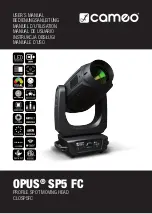
2
2. The instrument adopts the medium frequency induction heating, PID temperature
control algorithm. This heating method has the advantages of t non-contact between
the test cell and the heating body, even heating, fast speed, convenient control, strict
control of the temperature within error range of the preset temperature.
3. Internal standard capacitor is SF6 gas-filled three-electrode capacitance, and its
capacitor dielectric loss and electrical capacity is independent of ambient
temperature, humidity and other effects, so that the instrument accuracy can be
ensured even after prolonged use.
4. AC test power supply using AC-DC-AC conversion, effectively avoid the
fluctuations in mains voltage and frequency on dielectric loss measurement accuracy
effect. Even a generator, the instrument can work properly.
5. Perfect protection function; When there is over voltage
、
over current or
high-voltage short circuit, instruments can quickly cut off pressure, and issues
a warning message. When the temperature of the sensor failure or not
connected, the instrument will also issue a warning message.
6. There is a temperature limiting relay in the medium frequency induction heating
furnace. When temperature above 120 degrees, the instrument frees the relay
and stops heating.
7. More convenient the experimental parameter is set. Temperature setting range
0
~
125
℃
, AC voltage setting range 500
~
2200V, DC voltage setting range
0
~
500V.
8. Using of large-screen LCD display, with backlight and clear display. Friendly
interface, simply follow the Chinese menu prompt, enter the command, the
instrument can be automatically tested. And automatically store and print test
results.
9. Built-in real-time clock, the test date and time may be saved, displayed and printed
with the test results.
10. Calibration functions of cleaned dry cell. The measurement of dry cell’s capacitance
and dielectric loss factor can determine its cleaning and assembly conditions. The
calibration data is automatically saved and so that it facilitates the calculation of
relative permittivity and DC resistivity.




































